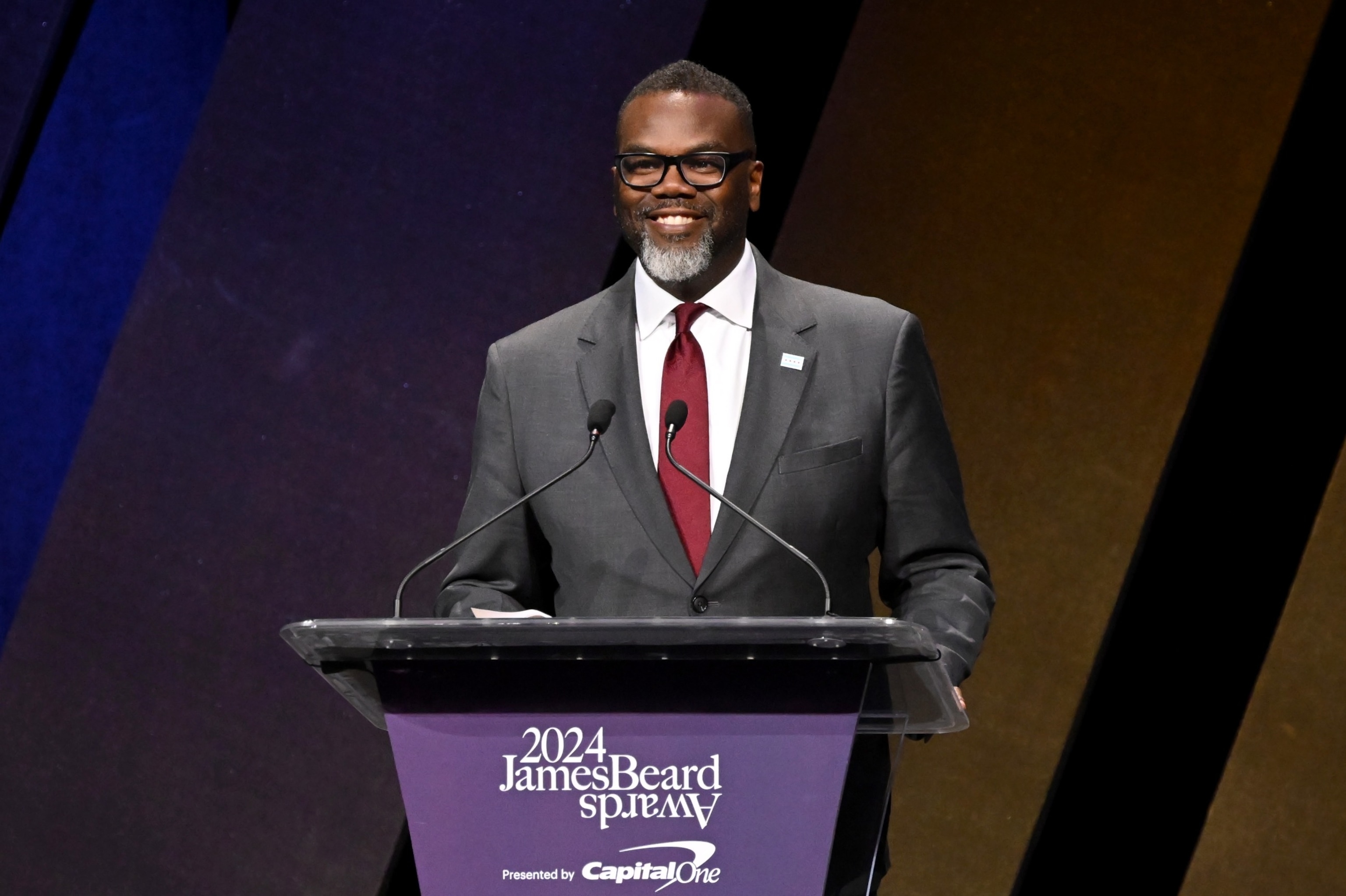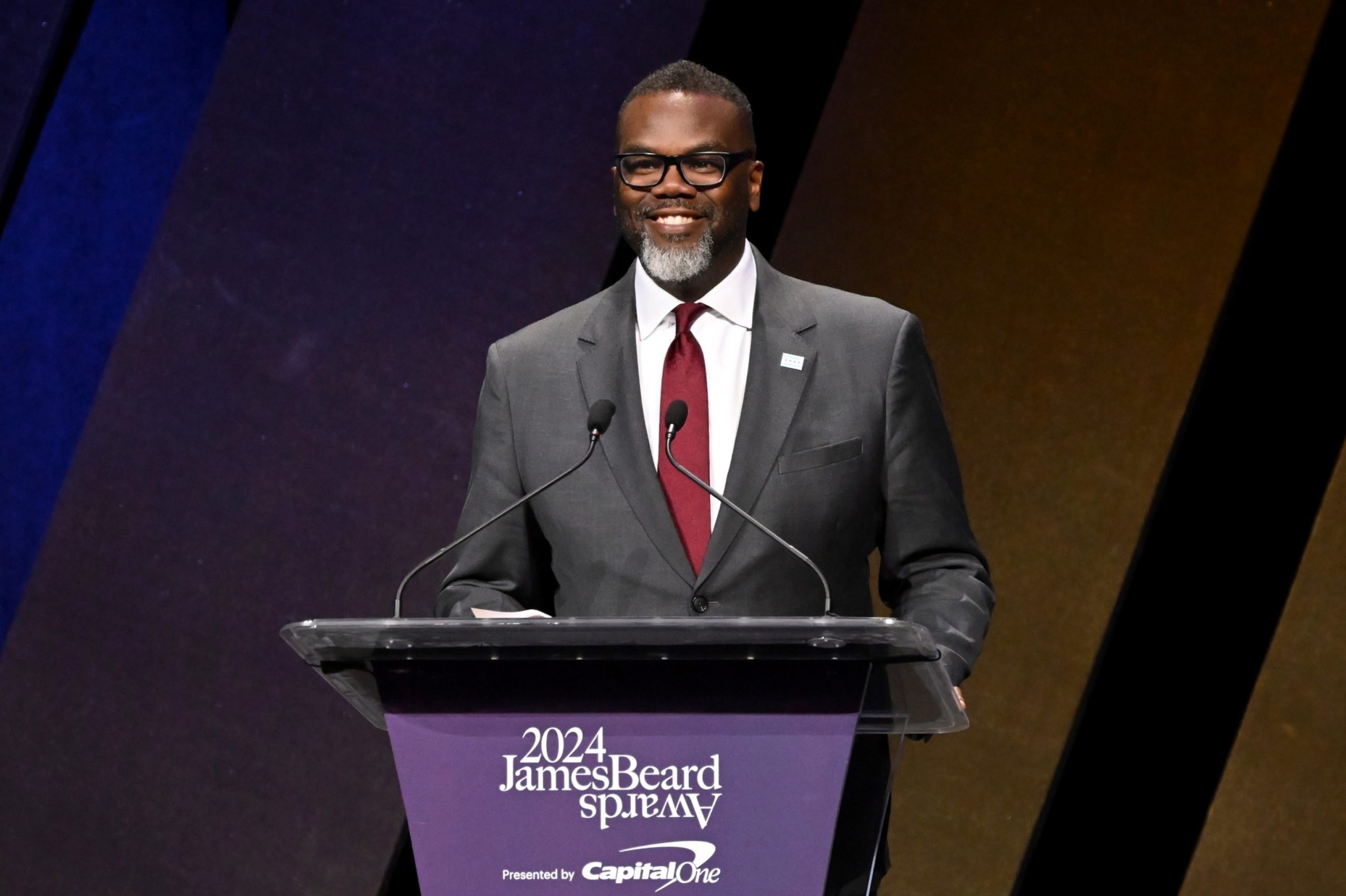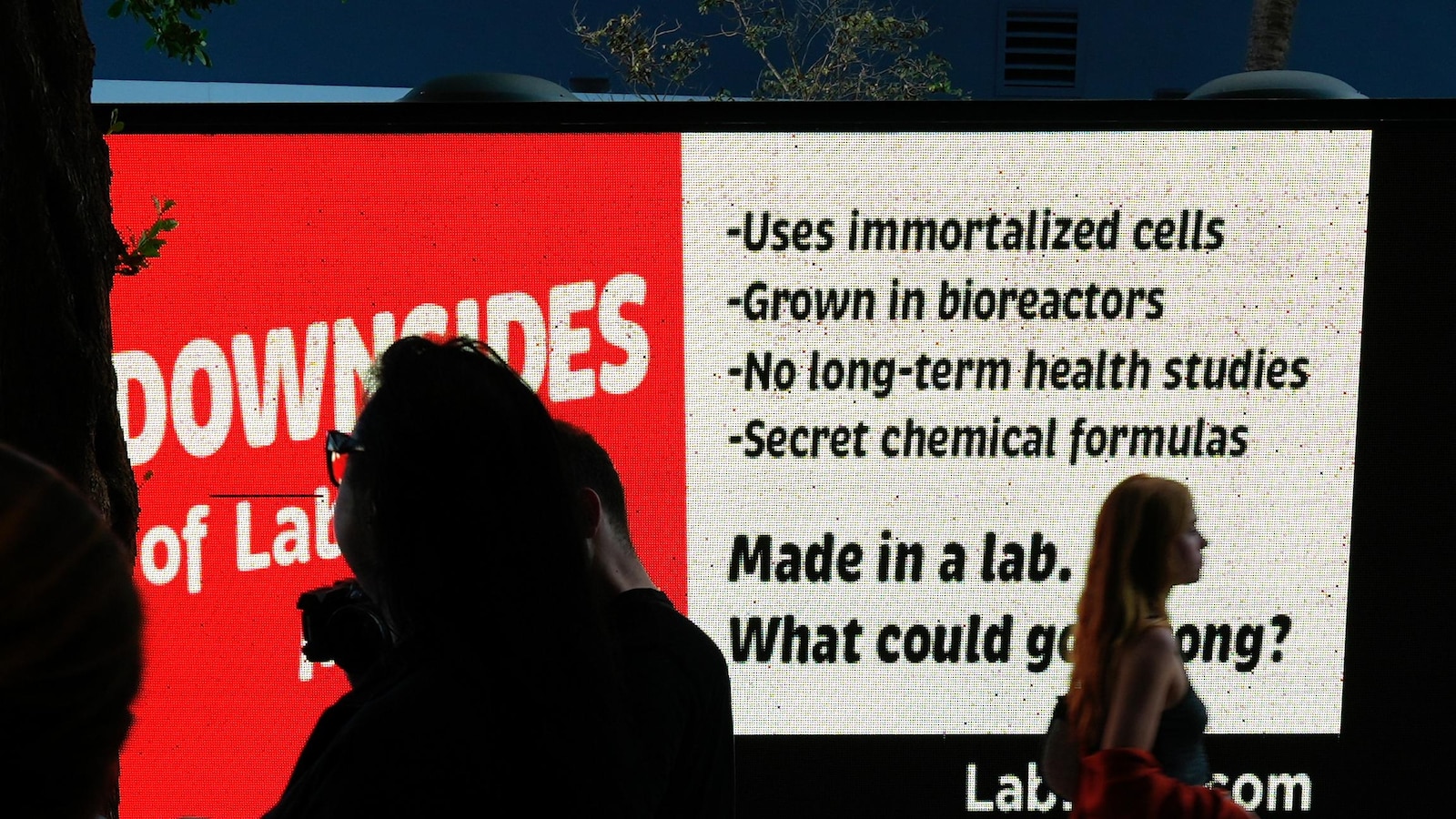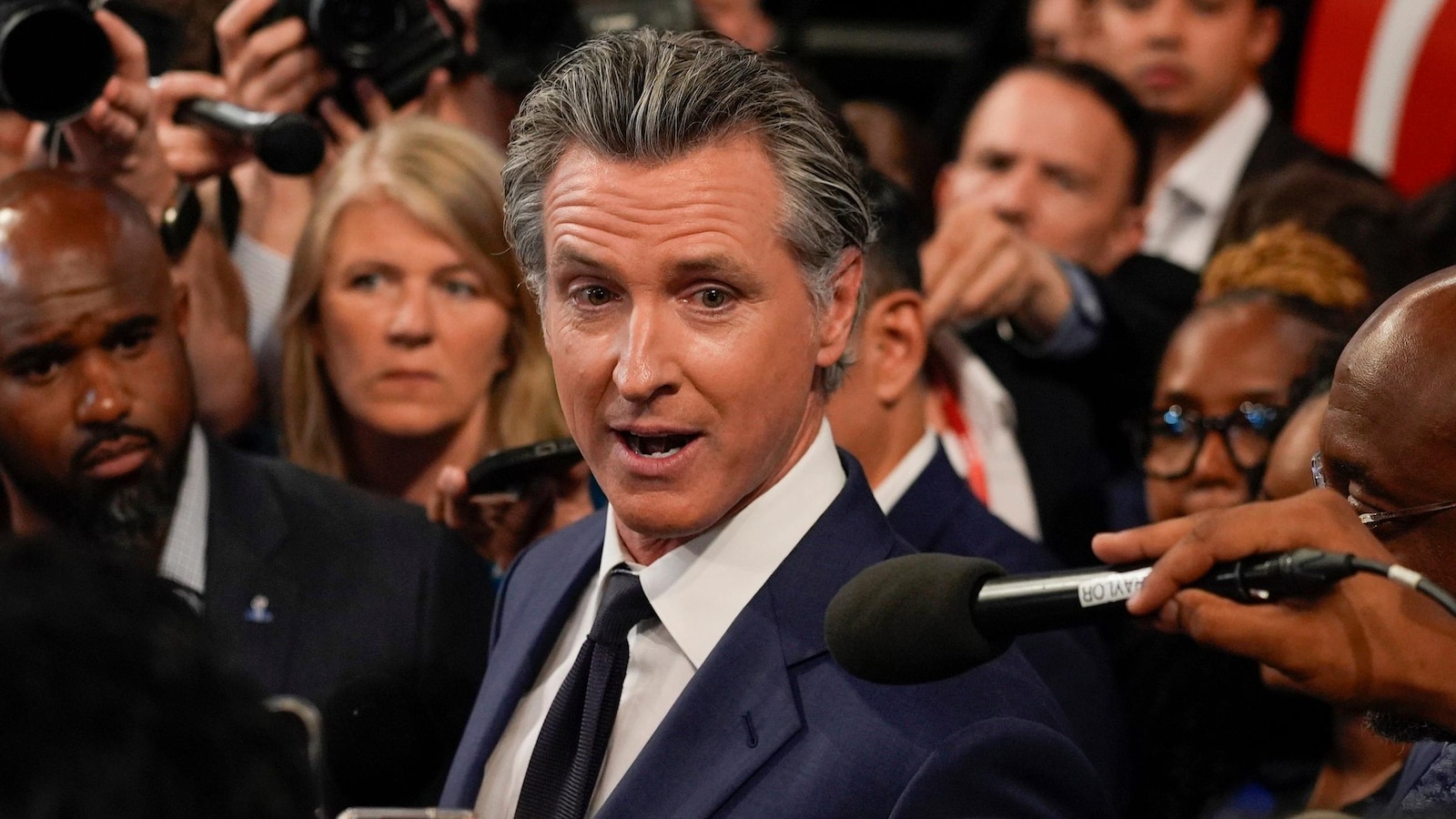Chicago Mayor Brandon Johnson signed an executive order Monday to establish a Reparations Task Force to develop a reparations plan for the city.
According to the mayor’s office, the task force will conduct a study and analysis of policies that have affected Black Chicagoans from slavery to the present day. Based on this analysis, the task force will recommend remedies to racial inequities caused by such policies.
Chicago has a large Black population, making up almost 30% of the city’s residents.
“Today’s Executive Order is not just a public declaration; it is a pledge to shape the future of our city by confronting the legacy of inequity that has plagued Chicago for far too long,” Johnson said in a press release.

Mayor Brandon Johnson speak onstage during the 2024 James Beard Restaurant and Chef Awards at Lyric Opera Of Chicago on June 10, 2024 in Chicago.
Daniel Boczarski/Getty Images, FILE
Reparations can appear in many forms, including financial payments, assistance, land restitution, social services, and more, according to the NAACP.
In his executive order, Johnson said the country and city “perpetuated, condoned, profited and benefited” from the system of chattel slavery. He then noted several Jim Crow-era policies from 1877 to 1963 that legalized and perpetuated racial segregation and discrimination.
These policies — including housing discrimination, redlining and highway construction — led to “disparities in life expectancy, unemployment, homeownership rates, home value, incarceration, and more,” Johnson’s office states.
The discussion on reparations has been ongoing — and controversial — in the U.S. since slavery was abolished in 1865. Some opponents of financial reparations say they are too expensive or discriminate against people who are not Black. Some supporters of financial reparations say they can address inequalities caused by discrimination that have harmed families for generations.
Evanston, Illinois — not too far from Chicago — became the first city in the country to fund reparations in 2021, committing $10 million over the next decade to repay Black residents for accumulated losses incurred by generations of housing discrimination.
However, a conservative legal group recently challenged the program in court, claiming the policy “discriminates against anyone who does not identify as Black or African American,” the group Judicial Watch states.
Chicago Mayor Brandon Johnson made history this week by establishing a Reparations Task Force through an executive order. This task force will be responsible for developing a plan to address the long-standing issue of reparations for African Americans in the city of Chicago.
The issue of reparations has been a hotly debated topic for many years, with advocates arguing that African Americans have been systematically disadvantaged and discriminated against for centuries and deserve compensation for the injustices they have faced. Mayor Johnson’s decision to establish a task force to address this issue is a significant step forward in the fight for racial justice and equality.
The task force will be made up of a diverse group of community leaders, activists, and experts who will work together to develop a comprehensive plan for reparations in Chicago. This plan will include recommendations for financial compensation, educational opportunities, housing assistance, and other forms of support for African American residents who have been impacted by systemic racism and discrimination.
Mayor Johnson has made it clear that he is committed to addressing the legacy of slavery and segregation in Chicago and ensuring that all residents have access to the resources and opportunities they need to thrive. By establishing this task force, he is taking a bold and important step towards achieving that goal.
The establishment of the Reparations Task Force in Chicago is part of a larger national movement to address the issue of reparations for African Americans. Cities like Evanston, Illinois and Asheville, North Carolina have already taken steps to implement reparations programs, and there is growing momentum for similar initiatives in other cities across the country.
While there is still much work to be done to address the deep-rooted inequalities that exist in our society, Mayor Johnson’s decision to establish a Reparations Task Force in Chicago is a positive and important development. By working together to develop a comprehensive plan for reparations, we can begin to right the wrongs of the past and create a more just and equitable future for all residents of the city.



